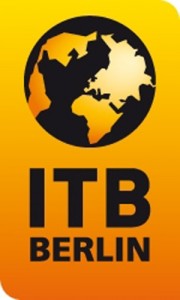 Digitisation in the travel industry and the opportunities arising from the refugee crisis are the main topics of the global travel industry’s leading think tank.
Digitisation in the travel industry and the opportunities arising from the refugee crisis are the main topics of the global travel industry’s leading think tank.
In order to successfully compete with the technology giants tour operators must rethink their strategies. This is where the digital transition offers a decisive advantage. Over a period of more than ten years the ITB Berlin Convention has established itself as an important trendsetter with innovative topics, and to mark the fiftieth anniversary of ITB Berlin it has put together a forward-looking programme of events. From 9 to 12 March 2016, under the heading of ’Travel 4.0 – the digitisation of the travel industry’, the convention will examine a number of topics, including the digital infrastructure, relevant content and the use of humanoid robots in the tourism industry. The challenges posed by the current refugee crisis, and in that context the general shortage of specialists, will also be the subject of debate. For trade visitors attending the world’s largest travel trade show admission to the ITB Berlin Convention is free.
On Wednesday, 9 March 2016, at the ITB ministers‘ round table at the ITB Future Day, a discussion will take place on the challenges posed by digitisation in the context of competing tourism destinations. With tourists the world over now able to obtain information through new channels the industry is undergoing far-reaching structural changes. Expanding digital infrastructures, legal frameworks for new business models and forward-looking professional training for employees are just some examples. Ministers from countries which are forging ahead with the digital transition will be highlighting opportunities and ways in which the tourism industry must adapt.
A debate that is part of the ITB CEO Interview series will take a closer look at the marketing and communication revolution triggered by the revolution in digital technology. Taking part will be Christoph Bornschein, managing director of Agentur Torben, Lucie und die gelbe Gefahr, and Prof. Dr. Roland Conrady, the science head of the ITB Berlin Convention and Hochschule Worms. Examples of best practices will serve to show how companies must change in order to stay competitive in the digital age.
Nowadays, the idea of a robot serving coffee at breakfast in a hotel is no longer a fantasy. Pilot studies have already tested the use of humanoid robots in the tourism industry. On Friday, 11 March, at the ITB Marketing and Distribution Day at a live demonstration of a Toshiba Chihira Aico, visitors to the ITB Berlin Convention will be able to make up their own minds about the future of robots in the global tourism industry. Afterwards, an interview with one of Toshiba’s experts responsible for this project will reveal more about the technology giant’s plans and whether robots can improve product quality and reduce company costs. A global, representative and exclusive survey carried out by Travelzoo will establish whether there is a demand for robots among customers as well. Richard Singer, managing director Europe of Travelzoo, will talk about the areas where tourists accept robot use and where they do not.
As the international travel industry’s largest think tank, next year’s ITB Berlin Convention will be discussing the influx of refugees to Europe, a development that poses new challenges for tourist destinations. On Thursday, 10 March, at the ITB Destination Day 2 a panel discussion organised by Deutsche Gesellschaft für Tourismuswissenschaft (DGT) in cooperation with the Association Internationale D’Experts Scientifiques Du Tourisme (AIEST) will present the findings of an international study on ’Flight, migration and tourism’. The discussion will examine the possible effects of being displaced, whether hostility exists, whether new forms of hospitality develop and what happens when tourists encounter refugees at a holiday destination.
On Friday, 11 March at the ITB CSR Day, a paper will look at the impact of migrants on the employment market in the tourism industry. The general shortage of specialists is an issue that clearly poses a challenge for tourism and the hotel industry. Visitors can find out about the opportunities and challenges that result from absorbing refugees on the German employment market and the positive examples that can be set.











